The garden focuses on health, for people, plants and all life, taking inspiration from human cultures that have tended thriving ecosystems for their nourishment. The garden explores the fascinating connection between the health of the soil, wildlife and our own microbiome – inspiring people to rewild their diets, gardens and relationship with the land.
Who is this garden for?
A community – to gather, grow and eat.
Where is the garden set?
West Country.
Who or what is the design inspiration?
Cultures that have tended thriving ecosystems for their nourishment.
Thoughtful edible plantings offer a probiotic feast that nourishes the human microbiome, helping safeguard against a myriad of bowel-related ailments and cultivating a healthier future for all.
The planting reflects an awe-inspiring natural landscape, while a serpentine charred-oak sculptural wall meanders through the garden and around ‘The Hive’, a simple yet sustainable, hexagonal shelter where people can gather to prepare food or take refuge from the elements.
Traditional log hives emerge from the woodland edge planting at the rear of the garden, providing habitats for pollinators for the rich floral display.
The garden will be relocated to the Apricot Centre in Totnes, Devon, which runs a sustainable farm helping children and families understand the fundamental link between the wellbeing of the soil, food and habitat, and the mental and physical health of the people who work in and around its farm.
Who is this garden for?
A community – to gather, grow and eat.
Where is the garden set?
West Country.
Who or what is the design inspiration?
Cultures that have tended thriving ecosystems for their nourishment.
Thoughtful edible plantings offer a probiotic feast that nourishes the human microbiome, helping safeguard against a myriad of bowel-related ailments and cultivating a healthier future for all.
The planting reflects an awe-inspiring natural landscape, while a serpentine charred-oak sculptural wall meanders through the garden and around ‘The Hive’, a simple yet sustainable, hexagonal shelter where people can gather to prepare food or take refuge from the elements.
Traditional log hives emerge from the woodland edge planting at the rear of the garden, providing habitats for pollinators for the rich floral display.
Key sustainability points
- The garden uses no cement or cement based products during construction.
- All timber (including unseen construction timber) is locally grown and milled close to the relocation site.
- Recycled aggregate is used in the shelter.
- Peat-free compost from recycled garden waste is used in the garden.
Relocation
The garden will be relocated to the Apricot Centre in Totnes, Devon, which runs a sustainable farm helping children and families understand the fundamental link between the wellbeing of the soil, food and habitat, and the mental and physical health of the people who work in and around its farm.All Show Gardens

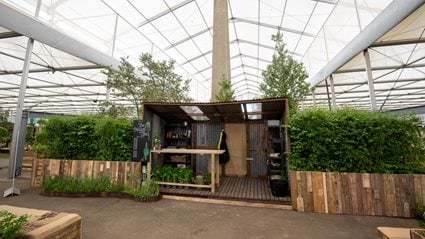
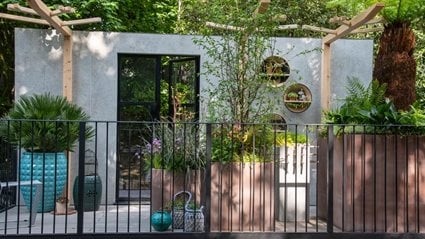
Balcony Gardens
The Discover More Garden sponsored by Viking
The Discover More Garden sponsored by Viking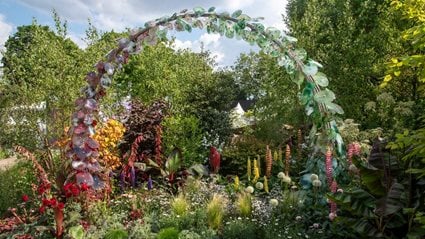
Feature Gardens
RHS Britain in Bloom 60th Anniversary: The Friendship Garden
RHS Britain in Bloom 60th Anniversary: The Friendship Garden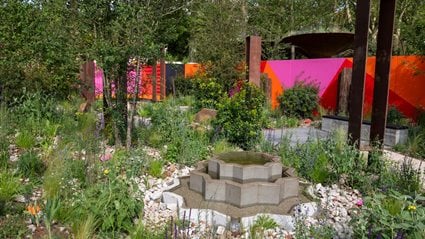
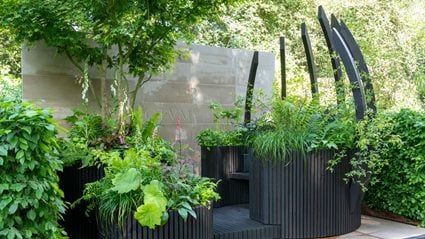



Balcony Gardens
The Discover More Garden sponsored by Viking
The Discover More Garden sponsored by Viking
Feature Gardens
RHS Britain in Bloom 60th Anniversary: The Friendship Garden
RHS Britain in Bloom 60th Anniversary: The Friendship Garden

prev
next
Get involved
The Royal Horticultural Society is the UK’s leading gardening charity. We aim to enrich everyone’s life through plants, and make the UK a greener and more beautiful place.





